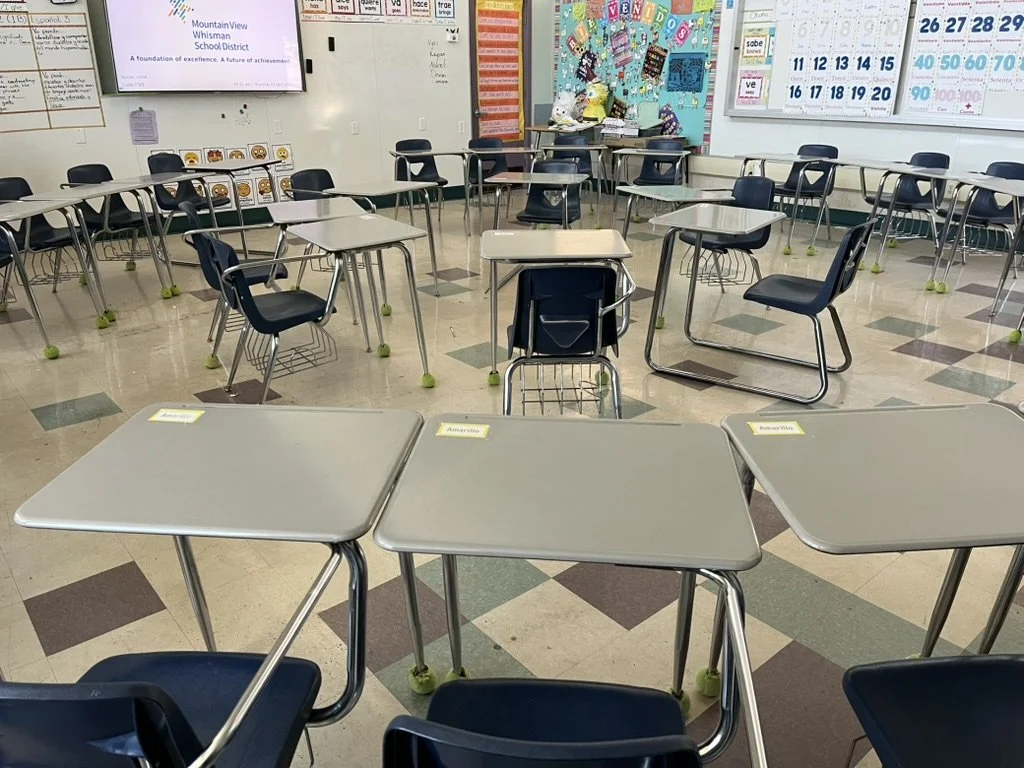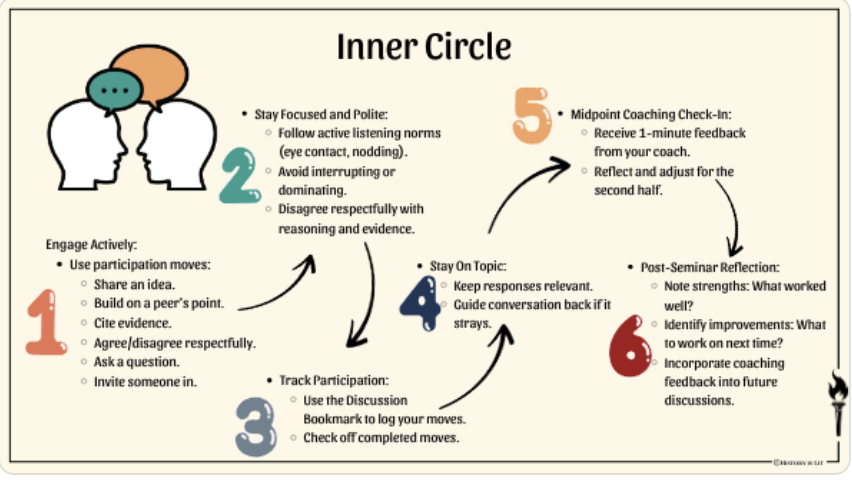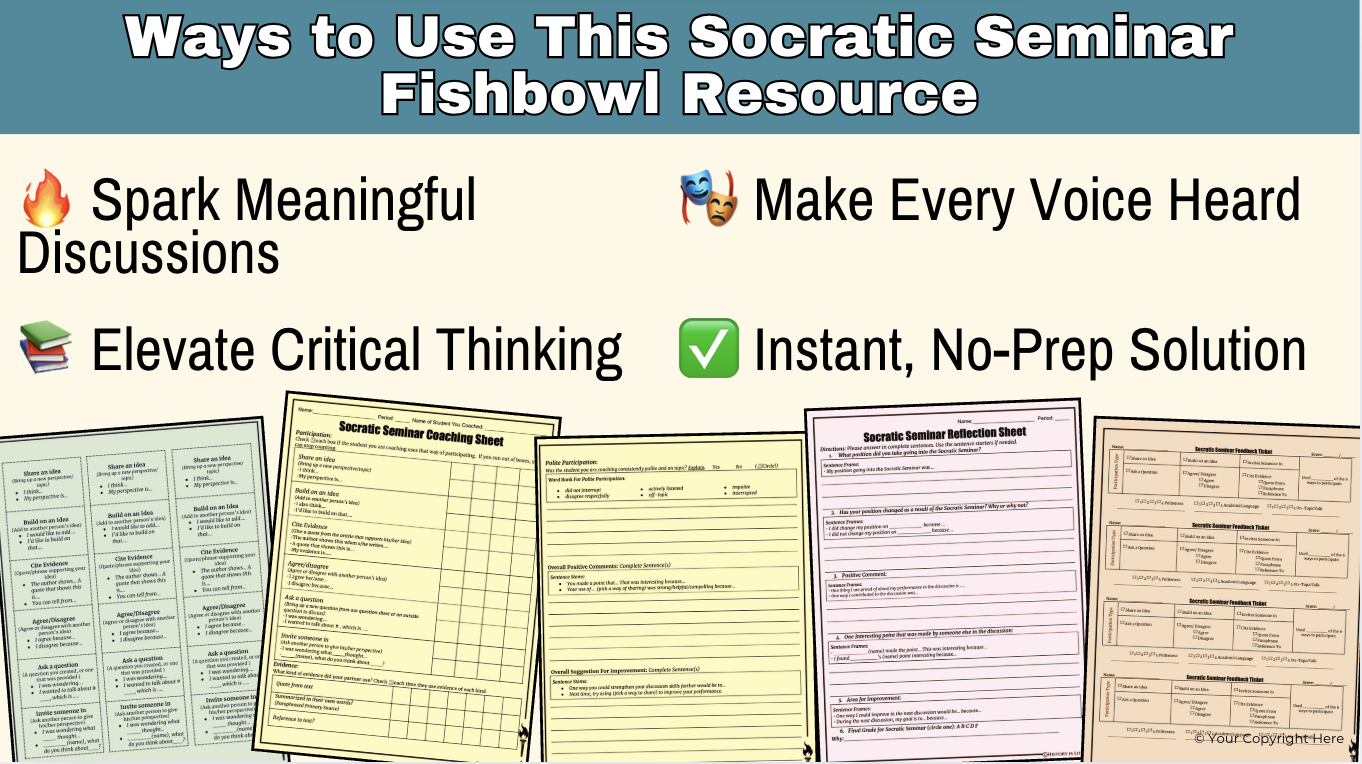Preparation Tips for Socratic Seminar Fishbowl
1. Arrange Your Space
Inner Circle: Seats for active discussants. Keep it tidy so they can focus on ideas, not distractions.
Outer Circle: Observers with clipboards or coaching sheets. Their job is to notice which discussion moves are working and which need a boost.
Teacher tip: Before day one, walk students through the layout and their responsibilities. When they know what’s expected, they’ll participate more confidently.
2. Clarify Roles
Discussants (Inner Circle): Your stars. They come prepared to cite evidence, ask probing questions, and build on peers’ ideas.
Coaches (Outer Circle): Your “academic detectives.” They track who speaks, how often, and which sentence stems get used.
Teacher tip: Assign roles a class period in advance. That way, introverts and extroverts alike have time to plan their contributions.
3. Share Your Resources Early
Sentence Frames & Starters:
“The evidence for that is…”
“I notice that…”
Coaching Sheets: Observation checklists—simple prompts for feedback, not essay assignments.
Rubrics: Clear criteria for respect, evidence, and critical thinking.
Teacher tip: Run a 5-minute walkthrough of each tool so no one’s “lost” during the seminar.
4. Pick Texts That Spark
Primary Sources: Speeches, letters, laws—real voices from history.
Secondary Sources: Quick articles or excerpts that add context.
Thematic Readings: Ethical dilemmas or current-event connections.
Teacher tip: Highlight 2–3 key passages. Provide guiding questions (“Why would [the author] say this?”) to focus annotation.
5. Do a Practice Run
Use a light topic—“Should pizza be a school-lunch staple?”—to model both roles.
Let students rotate once so everyone tries discussing and observing.
Teacher tip: Keep it playful. Confidence grows when the stakes feel low.
6. Equip Every Student to Succeed
Bookmarks/Checklists: Quick reminders of talk moves and respectful listening.
Color-Code Materials: Inner-circle handouts in one color, outer-circle in another—no scrambling mid-seminar!
Teacher tip: Post a visual timer and announce transitions with a simple signal (bell, hand-raise, whatever you prefer).
7. Manage Your Time
5-Minute Discussion Rounds: Enough to dig in without losing focus.
1-Minute Coaching Debriefs: Outer circle shares one strength and one area to grow.
Teacher tip: Use a countdown timer app—students love watching the clock, and it keeps energy high.
8. Reflect & Celebrate
Ask the whole class:
“What discussion move helped us dig deeper?”
“Next time, how can we make our evidence even stronger?”
Give a shout-out to both discussants and coaches for specific moments you noticed.
Teacher tip: Encourage students to set one personal goal for the next seminar (“I’ll ask two follow-up questions,” etc.).
Your fishbowl isn’t just a conversation—it’s a chance for students to practice real academic talk, build confidence, and learn from each other. You’ve got this!
Equip your class for richer discussions—grab the Socratic Seminar Bundle!







